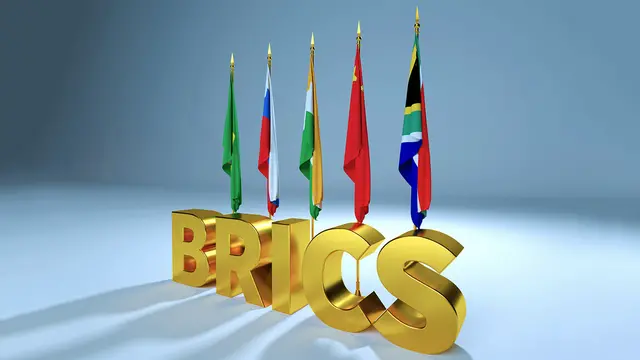The world is waiting in anticipation for the BRICS Summit and its subsequent outcomes. The outcomes may hold the key for the economic crises that grip the world, especially nations of the Global South.
Over the past decade, the BRICS countries through their own experiences have reached a consensus on the urgent need to release the grip the United States hegemony has over global economic and political life.
The unipolar policies imposed by the U.S. on the world have directly and indirectly caused many crises ranging from economic recessions, hunger and poverty through many countries around the world.
The U.S. has controlled global financial institutions such as the International Monetary Fund (IMF) and the World Bank, so that it raised the interest on loans and financing for countries whose economies need financing badly, such as those in Africa and South America, while financing and financial flows were easy and with almost zero interest for developed countries. The argument is that credit ratings are weaponized against some countries, threatening their political and economic stability.
With the emergence of COVID-19, and the Russian-Ukrainian conflict, it became clear to everyone that the IMF and the World Bank failed to address the economic repercussions resulting from these two major events.
Rather, the U.S. and Western countries also failed to address the crucial issues that threaten the whole world, such as climate change, security and global peace.
Hence the need for a new gathering that can express the voice of developing countries, marginalized countries and emerging economies, and negotiate from a position of power on a new multipolar world order.
This new world is one in which global institutions are reformed so that all countries of the world get fair treatment by each having one equal vote, and that the interests of all countries are taken into account and common development is for all.
It is not right for one country to monopolize hegemony over the global financial system, global monetary reserves, and the ability of countries to exchange goods and services freely and without any restrictions, additional costs or interference.
BRICS represents one of the most important platforms for achieving global balance, and therefore many countries have submitted membership applications to join. Some of these countries are looking for a solution to their dollar scarcity crisis stemming from capital flight and its withdrawal to the U.S., which has been raising interest rates regularly for two years without taking into account the impact of this on the rest of the economies and without coordination with any international financial institution. This is a clear violation of the principle of currency stability on which the world relies for 80 percent of its international trade.
Also, many countries want to join BRICS to have an appropriate role for their current economy, to change the world order in a way that reflects the new balance of power and not the balance of power after the Second World War.
The world does not tolerate the outbreak of a third world war so that states can impose their conditions and amend the laws and the world order. Therefore, states are now eager for a peaceful change of the world order that offers states more voice and more justice.
It can be considered that the presence of the BRICS and the accession of new members to it will allow it to coordinate with other organizations, such as the G20, the G7, the Shanghai Cooperation Organization and other organizations, to reach understandings that foster a new world order.
If this is not achieved in the short term, the BRICS can develop solutions and ideas to creating a global balance, as is proposed now, by issuing a new currency through which trade can be exchanged without additional cost or pressure from anyone.
The BRICS countries have taken strong steps in this direction, where we find China and Brazil have signed agreements for trade exchange in local currencies. The exchange in local currencies will undoubtedly increase in the coming period.
Hopefully, there will be a new world order established which allows a new global currency that is not controlled by a single central bank. This global currency will permit the restructuring of financial institutions in which everyone is equal and the needs of the least developed countries for financing and investments are taken into account.
(CGTN)
 简体中文
简体中文

